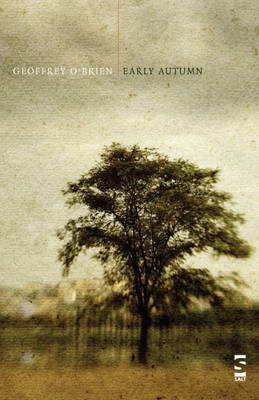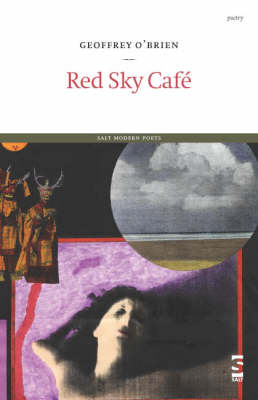Salt Modern Poets
3 total works
In A View of Buildings and Water Geoffrey O'Brien collects poetry from the last half-decade, among them poems that first appeared in such magazines as Talisman, The Germ, The Literary Review, and New American Writing, and including a number of long sequences that have not appeared anywhere in their complete form. These poems extend a concern with mapping the geographies of dream, fantasy, and intuited history, and with finding a music that might realize those spaces in a flexible, responsive measure. In form the poems range from a monologue from an unmade film noir to a sonic sculpture where sense is made to follow where sounds lead. In "Heads in Limbo" a varied cast of characters is epitomized in a series of epitaph-like three-line poems. Central to the book is a cycle of five poems exploring the stages of grief against a shifting background of terrains both real and phantasmagoric. The book's narratives - slippery, splintered, referring back to lost earlier chronicles - take their form from the mythmaking of ordinary life, the stories partly found and partly invented out of which we try to forge a connection to what has vanished and what has not yet arrived.
Early Autumn – the title derives from a plaintive jazz ballad with lyrics by Johnny Mercer – is framed by two long poems dealing with different aspects of loss. “Elegy for My Brother” – dedicated to the memory of the musician and visual artist Joel O’Brien – is both a confrontation with the physical process of dying and, in its second part, a description of the afterlife that subsists in memory, dream, and art. The book’s final poem, “The Ruins of a Long Gallery Illuminated Through a Hole in Its Vault,” is the expansive account, framed as an unbroken sentence, of a single moment: in looking at an 18th-Century painting of an ancient ruin, a kind of condensed world history is set in motion, moving through layers of experience and fantasy to come face to face with the recent catastrophe of the September 11 attack in the form of wreckage outside the poet’s window in New York.
The intercepts transcribed are not devoid of static and are occasionally interrupted by ambient laughter and crowd noises, not to mention the odd and invariably distressing newscast: with special guest appearances by Medusa, Catullus, Clinton prosecutor Kenneth Starr, and a complement of jungle moon men. Red Sky Cafe collects poems from the last decade, many of which appeared previously in such places as Hambone, Fence, Conjunctions, Open City, and The Germ.


